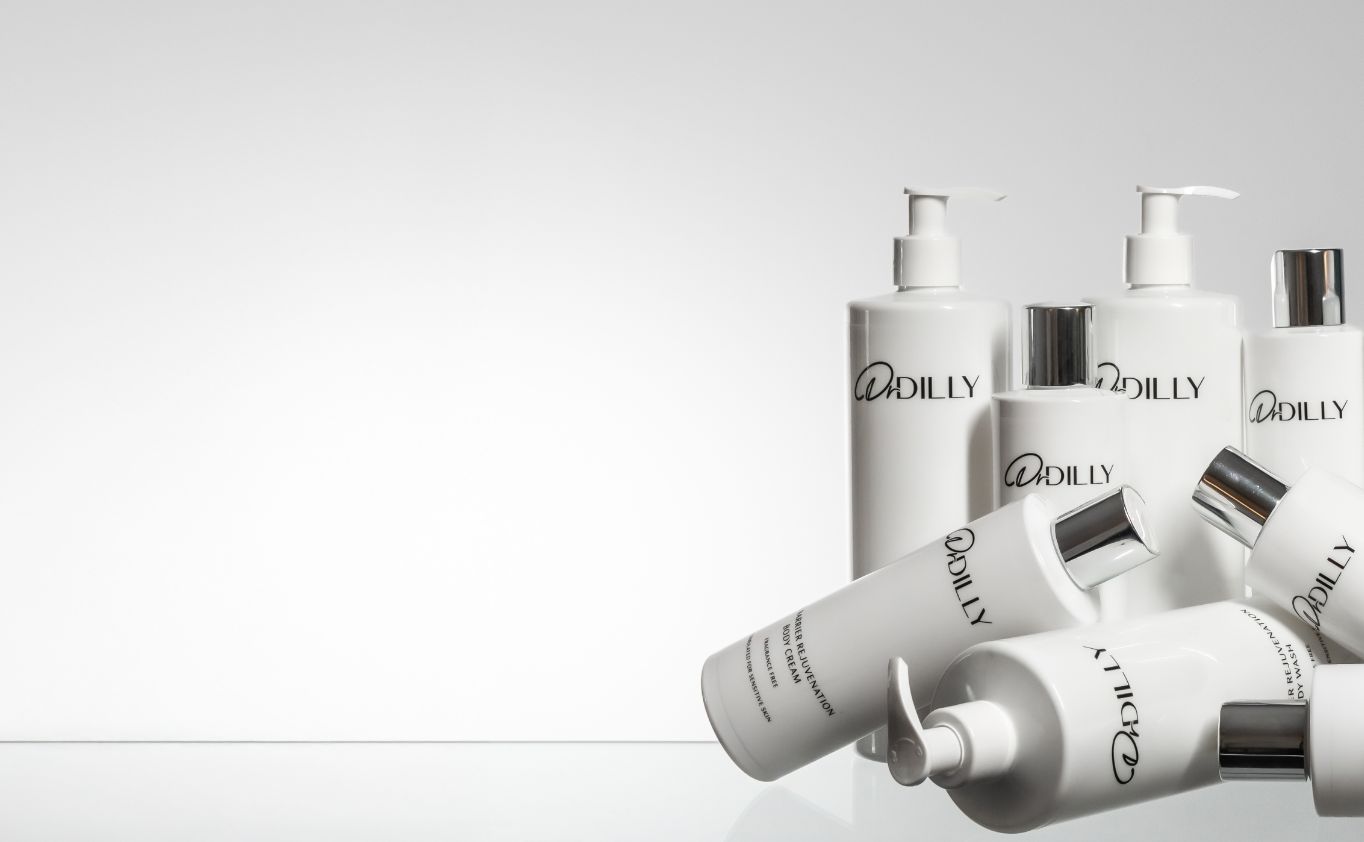
DOCTOR’S INSIGHTS
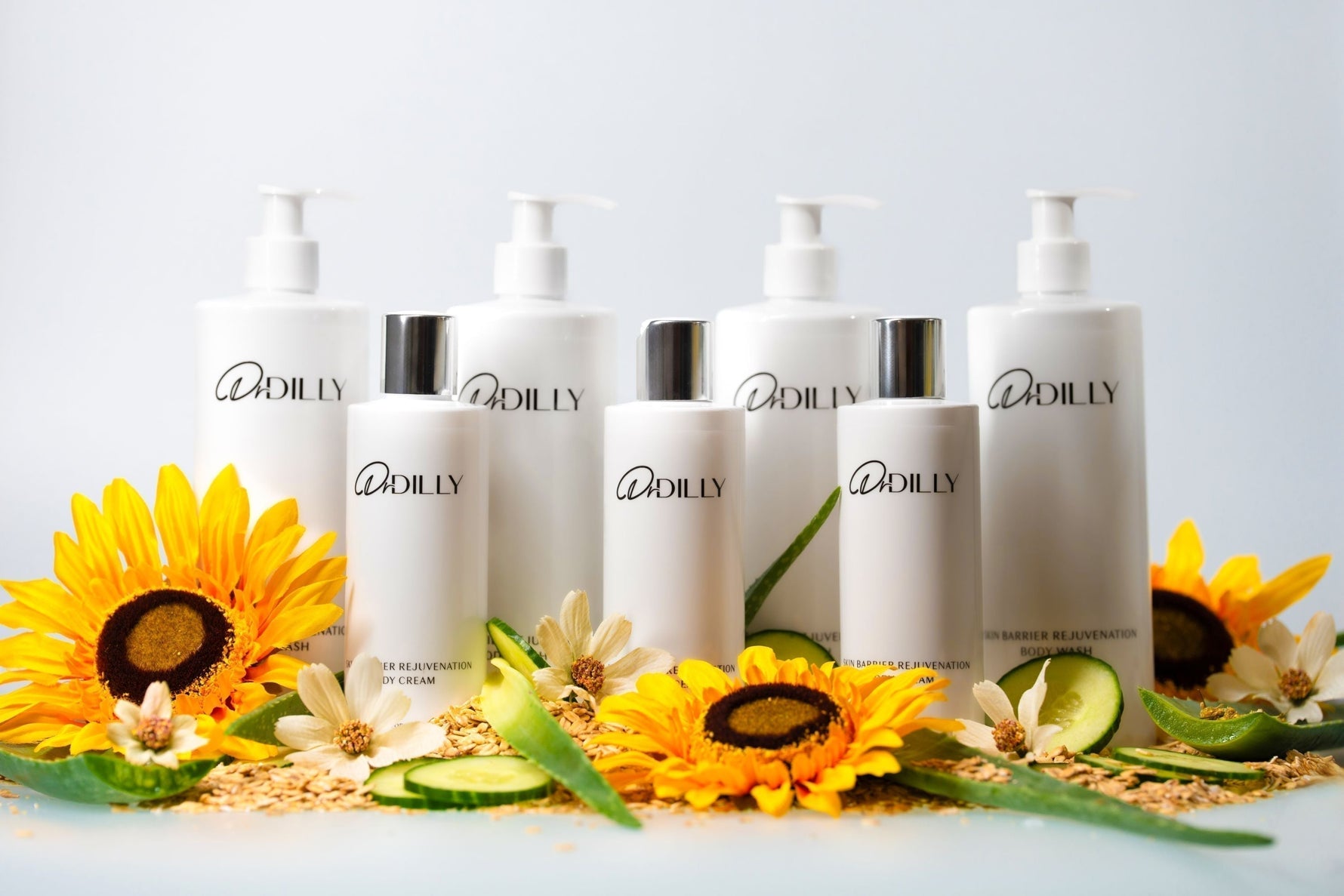
How to Tell If Your Skin Barrier Is Damaged
If your skin is feeling dry, sensitive or irritated no matter what you try… You might be dealing with a damaged skin barrier. Here’s what that means and how to repair it fast.
What Is the Skin Barrier?
Your skin barrier is the outermost layer of your skin (stratum corneum). It works like a natural shield, keeping moisture in and harmful things like bacteria, pollution and irritants out.
When the skin barrier is healthy, your skin feels soft, smooth and calm. However, when it’s damaged, your skin can become dry, red, itchy or unusually sensitive.
How to Know If Your Skin Barrier Is Damaged
There are common signs your skin barrier may need repair, if these occur listen up! Your skin may be dry, red, itchy, rough, burning or stinging when you apply skincare products or when bathing and you may experience more frequent skin flare-ups.
What Can Damage Your Skin Barrier?
Several things can disrupt your skin barrier, including harsh skincare ingredients, allergens in skincare, over-cleansing or over-exfoliating (especially using scrubs or strong acids), chronic skin conditions like eczema, dermatitis or psoriasis, environmental stress like cold weather, sun exposure or low humidity, pollution and age can also weaken your skin barrier over time.
How to Repair and Strengthen Your Skin Barrier
1. Simplify Your Skincare Routine. Less is more when your barrier is damaged. Switch to gentle, hydrating products and avoid harsh chemicals.
2. Look for Barrier-Friendly Ingredients. Use skincare with; hydrating agents like Glycerin, hyaluronic acid, soothing ingredients like oats, aloe vera, cucumber, vitamin E, replenishing lipids like Squalane, shea butter, sunflower seed oil.
3. Moisturise Often. Apply a rich, nourishing moisturiser especially after washing your face or showering while your skin is still damp. This locks in moisture and prevents water loss.
4. Protect Your Skin Daily. Wear SPF every day, even when it’s cloudy. Avoid aggressive treatments like harsh scrubs or peels.
Be patient, a damaged barrier can take several weeks to heal, so consistency is key. A strong, healthy skin barrier is the secret to glowing, comfortable skin. With a gentle routine and the right ingredients, you can repair your skin and protect it long-term.
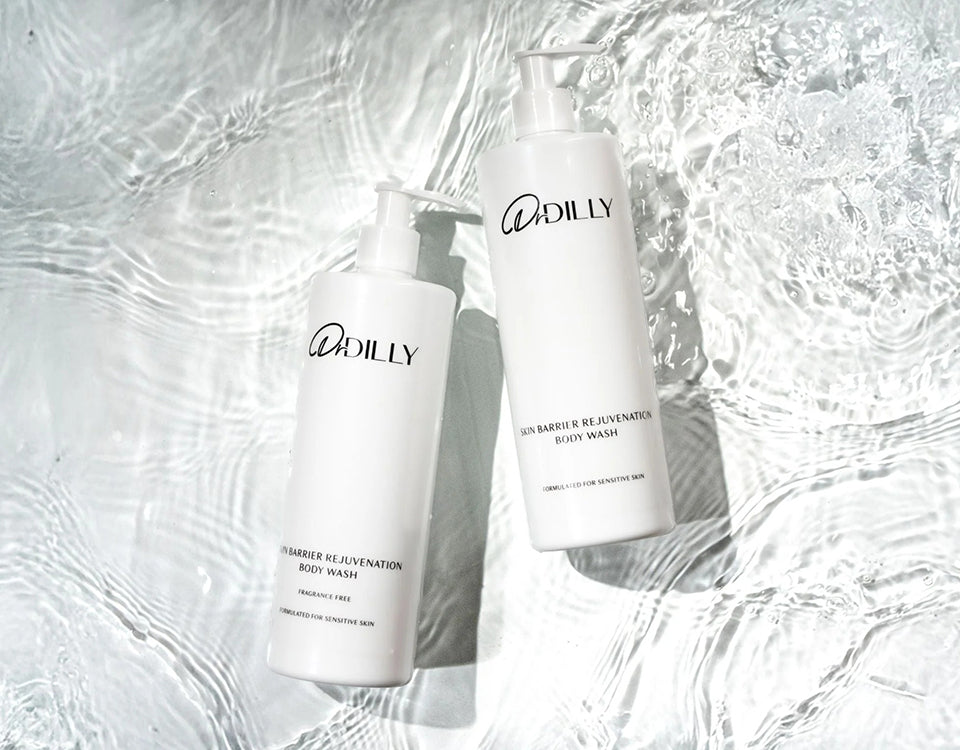
Is your skin constantly reacting to products or the environment? If so, you might have sensitive skin. Here’s how to spot the signs, understand what causes it and discover gentle ways to manage it every day.
What Is Sensitive Skin?
Sensitive skin means your skin overreacts to things that most people’s skin can tolerate such as skincare products, cold weather or even stress. Some people deal with sensitivity occasionally, while for others it’s a daily concern.
How To Tell If You Have Sensitive Skin
Here are a few telltale signs you may have sensitive skin; dry skin, redness, itching, stinging, burning, tightness, breakouts or rashes from skincare or make up products.
What Causes Sensitive Skin?
There’s no single cause, but several factors can make your skin more reactive:
Weakened Skin Barrier. When your skin barrier is damaged, irritants can get in more easily, causing inflammation.
Skin Conditions. Eczema, psoriasis and allergic reactions are common causes that lead to chronic sensitivity.
Environmental Factors. Wind, sun, temperature changes and pollution can all irritate sensitive skin.
Irritating Ingredients. Sulphates, silicones and denatured alcohol in skincare or cosmetics can trigger a reaction.
Hormonal Changes. Shifts during menstruation, pregnancy or menopause can temporarily make your skin more sensitive.
How to Manage Sensitive Skin: Gentle Care Tips That Work
You don’t need a complicated routine, just the right one. Here’s how to soothe and protect sensitive skin:
Always Patch Test New Products. Apply a small amount of product behind your ear or the inside of your wrist before full use for 24-72 hours.
Keep Your Routine Simple. Stick to minimal, gentle products to reduce your skin’s exposure to potential irritants.
Use Products Made Specifically For Sensitive Skin. Look for labels like “suitable for sensitive skin” or “formulated for sensitive skin”.
Moisturise Daily. Use a calming, barrier-repairing moisturiser to lock in hydration, soothe skin and strengthen your skin’s defence.
Protect from Harsh Weather. Wear sunscreen daily and use protective clothing or scarves in extreme weather.
Sensitive skin can be frustrating, but it’s manageable with the right care. By understanding your triggers and sticking to a gentle, protective routine, you can keep your skin calm, clear and comfortable.
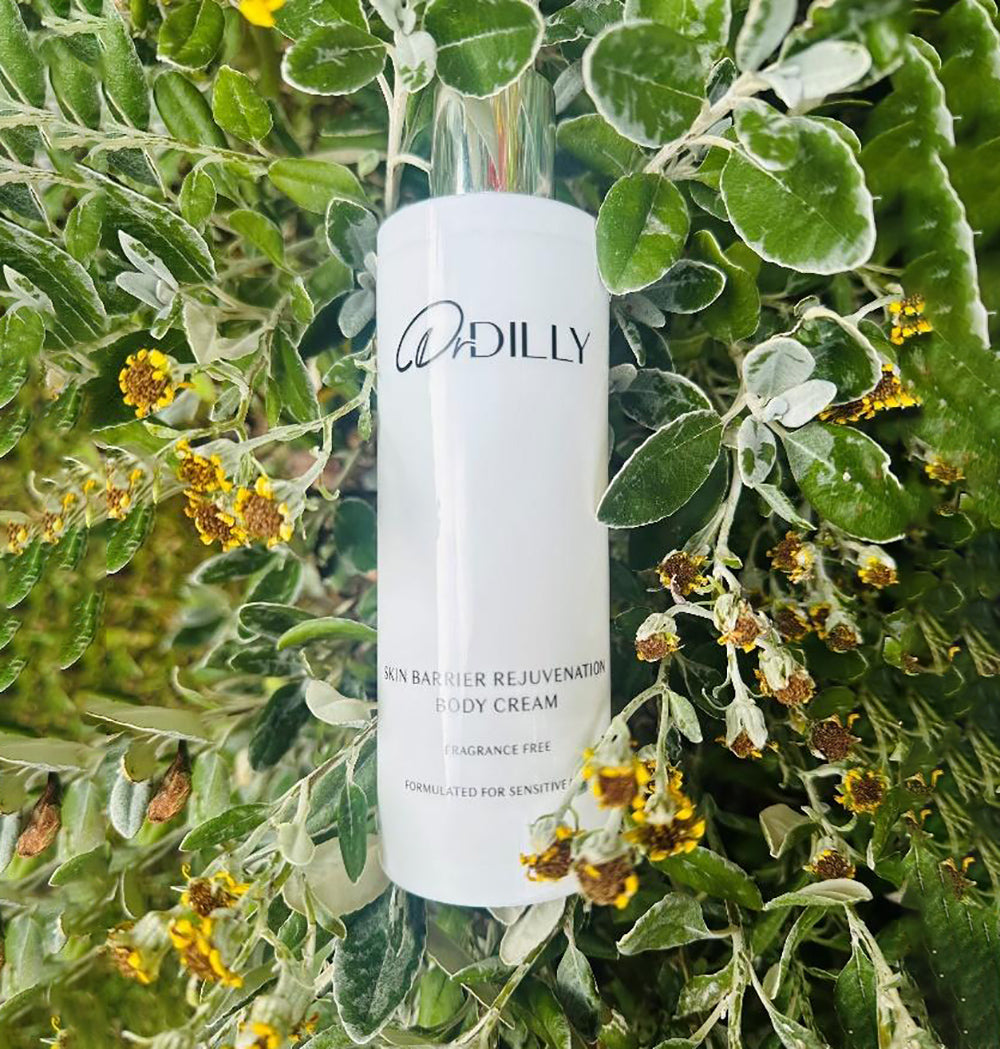
The Power Of Natural Skincare Ingredients
If your skin is easily irritated, red or dry, the ingredients in your skincare matter more than ever. Harsh chemicals can strip away natural oils and damage your skin barrier. That’s why switching to products made with natural ingredients can make a world of difference.
Why Choose Natural Skincare?
Natural ingredients, when carefully selected and used correctly are powerful, without the harsh side effects that often come with synthetic chemicals. Switching to natural skincare can be a game-changer especially if you have sensitive, reactive or eczema-prone skin.
Why Are Natural Ingredients A Good Choice For Sensitive Skin?
Gentle and Soothing. Natural ingredients are typically much gentler on the skin. Calming plant-based ingredients are known for their anti-inflammatory and soothing properties.
Packed with Skin-Loving Nutrients. Plants are naturally rich in vitamins, antioxidants and essential fatty acids, all of which your skin needs to stay healthy and resilient. These nutrients help nourish, repair and protect your skin without the need for synthetic additives.
Supports a Strong Skin Barrier. A healthy skin barrier is your body’s first defence against dryness, irritation and environmental stress. Natural ingredients help to replenish the skin’s natural lipids, restore hydration and rebuild the vital protective layer.
Free from Harsh Additives. Many people react to synthetic ingredients like sulphates and silicones. Natural skincare tends to skip these entirely, making it a safer, more skin-friendly option, especially for reactive or allergy-prone skin. Our products are free-from harsh chemicals, making it ideal for those with sensitive or barrier-compromised skin.
Better for the Environment. Choosing natural isn’t just good for your skin, it’s good for the planet too. At Dr Dilly, we use sustainably and ethically sourced botanicals that are kind to your body and the environment.
Our Skin Barrier Rejuvenation Collection, contains over 99% natural ingredients, they are Sulphate-Free | Paraben-Free | Silicone-Free | PEG-Free | GMO-Free | Gluten-Free | Vegan | Cruelty-Free.
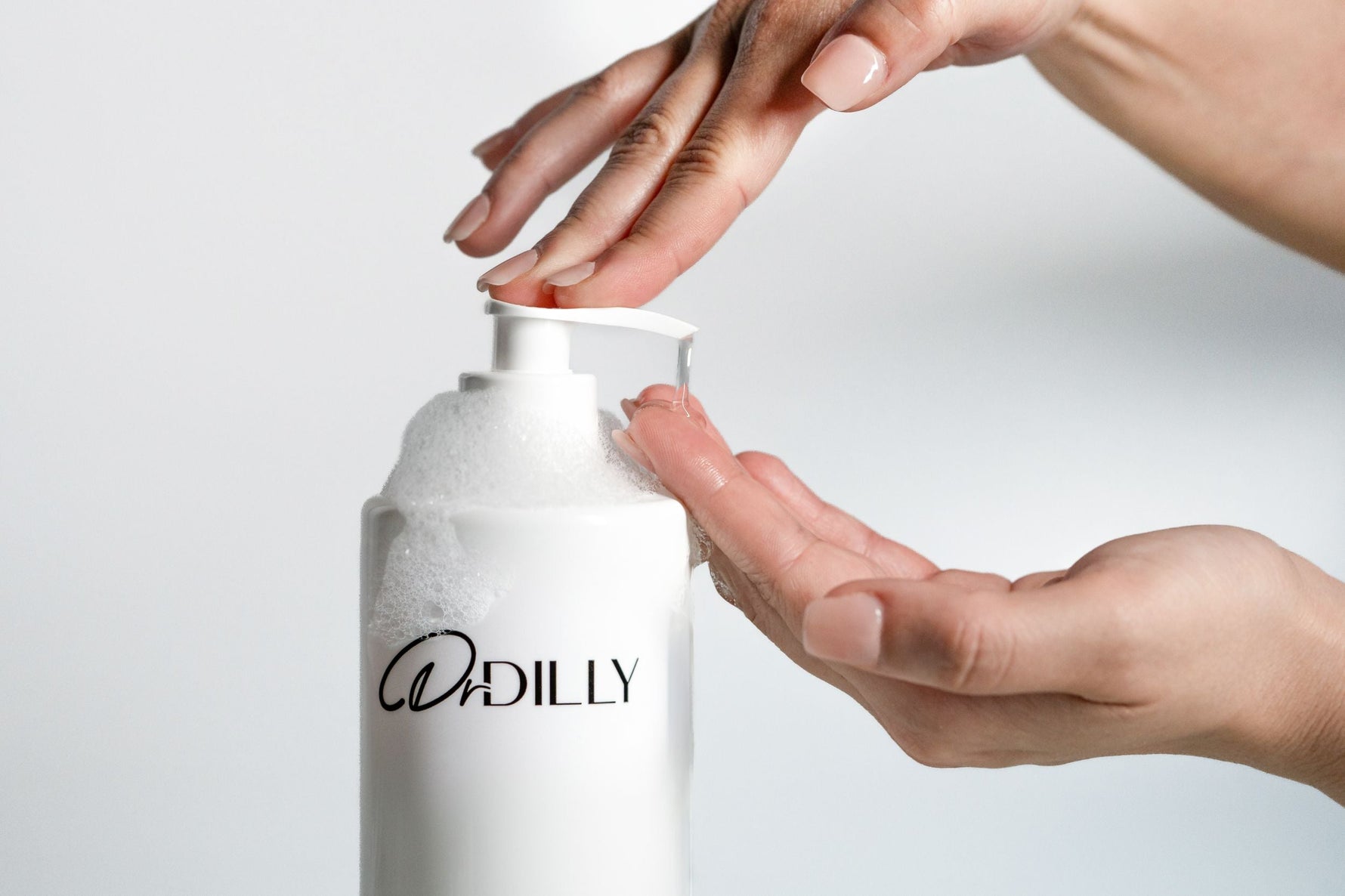
Eczema is often mistaken for simple dryness, but it’s a complex skin condition that goes far beyond flaky patches. From intense itching and inflammation to flare-ups triggered by stress, allergens, or even the weather, eczema can be deeply disruptive. Let’s explore what truly sets eczema apart from everyday dryness, uncover its root causes, and share expert insights on how to soothe and support sensitive, eczema- prone skin.
Common Symptoms of Eczema
Eczema symptoms can vary from person to person but typically include:
Dry skin. The skin loses moisture, leading to dryness and peeling.
Redness. Inflammation causes the skin to appear red and feel tender.
Intense itching. An overwhelming urge to scratch, which can worsen the condition.
Cracked skin or rough patches. Skin may become thickened and leathery over time.
Hyperpigmentation. Due to repeated flare-ups and itching, which causes direct injury to the skin, over time you may notice hyperpigmentation.
What Causes Eczema?
Eczema is not usually caused by a single factor but rather a combination of elements:
Genetics. A family history of eczema, asthma or hay fever increases the likelihood of developing eczema.
Environmental Triggers. Exposure to allergens like dust mites, pet dander, pollen and irritants such as harsh soaps or detergents can provoke flare-ups.
Climate and Weather. Cold, dry air or hot, humid conditions can exacerbate symptoms.
Stress. Emotional stress can trigger or worsen eczema by affecting the immune system.
Skin Care Products. Harsh ingredients or chemicals can irritate sensitive skin.
How to Manage Eczema Effectively
Managing eczema involves a combination of lifestyle adjustments and skincare practices.
Avoid Known Triggers. Identify and steer clear of allergens or irritants that provoke your symptoms.
Moisturise Regularly. to keep the skin hydrated and strengthen the skin barrier.
Use Gentle Body Washes In The Shower. Opt for mild cleansers which do not strip the natural oils from your skin.
Wear Breathable Fabrics. Choose soft, natural materials like cotton to reduce irritation.
Maintain A Healthy Diet. Ensure adequate intake of vitamins and minerals to support skin health, avoid processed foods and excess sugars.
Manage Stress. Practice relaxation techniques such as yoga, meditation or deep-breathing exercises to reduce stress levels.
Consult a Healthcare Professional. If symptoms persist or worsen, seek advice from your doctor for appropriate treatment options.
While eczema can affect your quality of life, it can be managed in a way that significantly reduces its day-to-day impact, allowing you to live more comfortably and confidently with the condition.
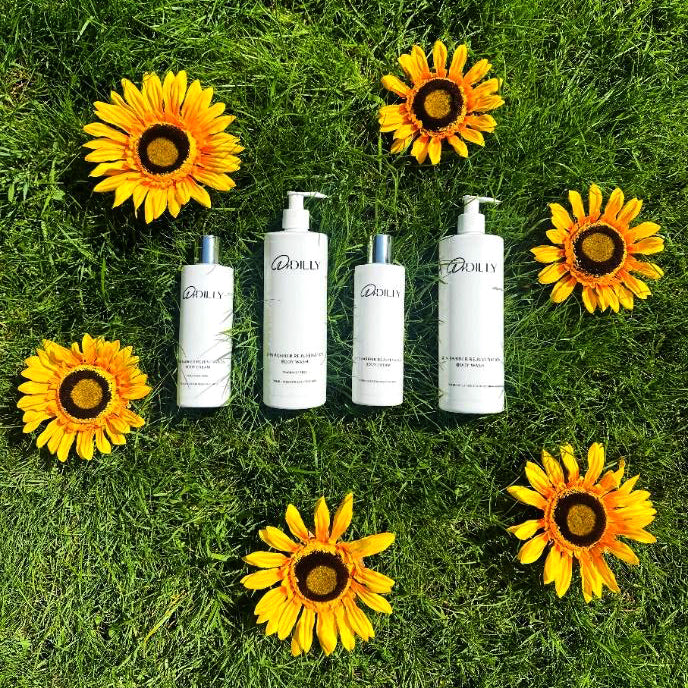
Fragrance vs. Fragrance-Free Skincare
Fragrance in skincare is a hot topic, especially for those with sensitive or eczema-prone skin. But should you avoid all fragrances? The answer isn’t always clean cut. Let’s break it down.
I’m often asked “Should I completely avoid fragrance in my skincare routine?” The truth is, it depends on your skin type, your sensitivities and the type of fragrance used. Let’s explore the four main types of fragrance in skincare and which is safest for your skin.
Fragrance-Free
When a product is labelled fragrance-free, it means no added fragrance (synthetic or natural). This is usually an option people with extremely sensitive skin will choose.
Our Skin Barrier Rejuvenation Collection contains fragrance-free versions of the Body Cream & Body Wash. As our products contain over 99% Natural ingredients, with no masking agents and no fragrance, you may noticed a subtle natural aroma from the raw ingredients in the body cream. This is normal and harmless. We recommend to store the body cream in a cool, dry place.
Allergen-Free Fragrance: A Gentle, Luxurious Alternative
If you enjoy the feeling of scented skincare but worry about reactions, an allergen-free fragrance is a great option for you. These are synthetic fragrance blends designed without the 26 common fragrance allergens, making them safe for sensitive and reactive skin.
Our Skin Barrier Rejuvenation Collection contains allergen- free fragrance blends of the Body Wash & Body Cream. This delicate fresh aroma provides a luxurious scent without compromising your skin’s comfort.
Natural Fragrances (Essential Oils)
Essential oils are often marketed as “natural,” but they can be very potent and irritating, especially on sensitive, damaged or eczema-prone skin. They are a common cause of allergic reactions or inflammation.
Synthetic Fragrance (Non-Allergen-Free Fragrances)
Not all synthetic fragrances are created equal. There are 26 known allergens in synthetic fragrances. If it’s not labelled "allergen-free" then synthetic fragrances can contain irritating allergens/chemicals that may trigger flare-ups, redness or itching, especially in people with sensitive or eczema-prone skin.
Which Is Best for You?
If your skin is sensitive, reactive or eczema-prone, your best choices are:
-Fragrance-Free Skincare OR Allergen-Free Fragrance Skincare
Avoid essential oils and non-allergen-free synthetic fragrances if your skin is sensitive or prone to eczema.

